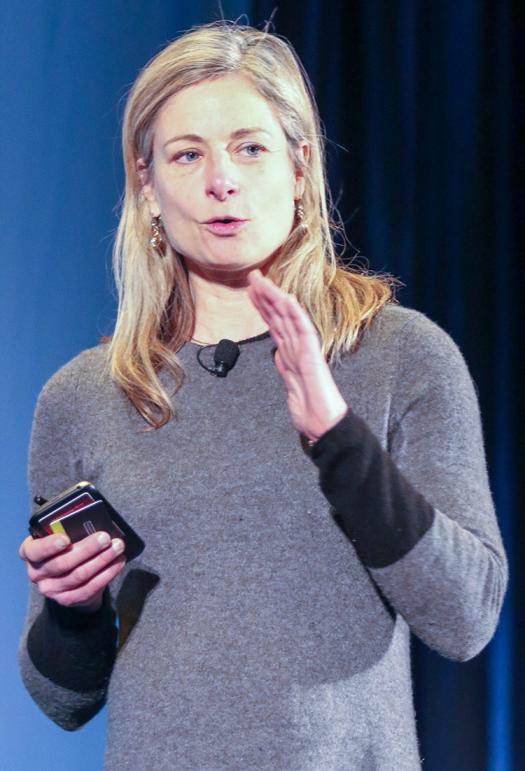CRISPR and dark matter
At the conclusion of the Intel Science Talent Search, the finalists and alumni from around the country converged for the Alumni Conference on March 16, 2016. Many notable panelists, Nobel Prize winners, and STEM leaders discussed their journeys through science and engineering.
Two featured speakers during the conference were Feng Zhang, an Intel STS 2000 finalist and assistant professor in the Department of Brain and Cognitive Sciences at MIT, and Lisa Randall, a Westinghouse STS 1980 finalist and Frank B. Baird, Jr., professor of science at Harvard University.

Feng Zhang has been heavily invovled in the creation of the CRISPR/Cas9 gene editing system. The system has been covered a lot recently, for its potential ability to help treat diseases and the worries that it may lead some to alter what it is to be human.
Lisa Randall, a best-selling author, has written four books on physics. Her most recent, “Dark Matter and the Dinosaurs: The Astounding Interconnectedness of the Universe,” discusses the comet that killed the dinosaurs and three-quarters of other species on the planet.
“Writing books has given me an opportunity to bring science to the larger public,” Lisa said. “It’s translating science for the wider world.”
Feng Zhang
CRISPR/Cas9 is a very powerful system that allows scientists to sequence DNA cheaper, which is a huge breakthrough. The ability to go in and target genes is easier with this system.
Feng described a more simplistic way of understanding genes and DNA. “The gene is like a book and it’s composed of genetic sentences,” he said. “Punctuation marks are terminators, nouns are genes, adjectives are enhancers, and verbs are promoters.”
Mutations can occur anywhere, “anything can interrupt the sentence structure,” Feng said. And now CRISPR offers a better way to make corrections to the cells. Older technology, like gene therapy or gene augmentation, doesn’t work completely, he said.
With that existing technology, “you end up with something like ‘twinkle twinkle little BIG star’,” Feng said. “It doesn’t fully fix it. With RNA you get ‘twinkle twinkle ____ star.’ Which is still not fully complete.” Genome editing allows for the full correction of an error or mutation.
Feng compared CRISPR to the “find all, replace all” function on a computer.
“We need a way to place the cursor in the right spot (the DNA double stranded break,” he said. “That’s where we can carry out the editing.” This can start to reverse diseases like sickle cell or possibly HIV, he said.
A similar technique could be used to change agricultural seeds, to create ones with higher yeilds or drought resistance, he said.
“By looking into and harnessing natural systems, and exploring curiosity, we can develop systems that have the potential to really impact our lives,” Feng said.

Lisa Randall
Lisa Randall has written four books on physics. Her most recent is “Dark Matter and the Dinosaurs: The Astounding Interconnectedness of the Universe.”
Lisa said she feels like the Westinghouse STS photo of her holding up a trophy is her baby picture in every physics department.
She’s interested in dark matter because it is fun to study. Her research combines smaller and larger scales of physics.
“As we get into the smaller scales [of physics], we learn about quantum mechanics, strong interactions which bind together. We discover new physical laws,” she said. “At larger scales, it seems that basically the same rules apply to the structure of the universe, the galaxy, the solar system.”
She also discussed the different scales of change. “Change happens in both ways, extremely fast and slowly. The Big Bang happened fast in the beginning, but now the universe is expanding slowly,” she said.
A main focus of science is curiosity, Lisa said. “Curiosity is the fact that we can ask questions,” she said. “The great thing about science is being able to ask questions but also having a specific topic you research. Focus leads to advances.”


